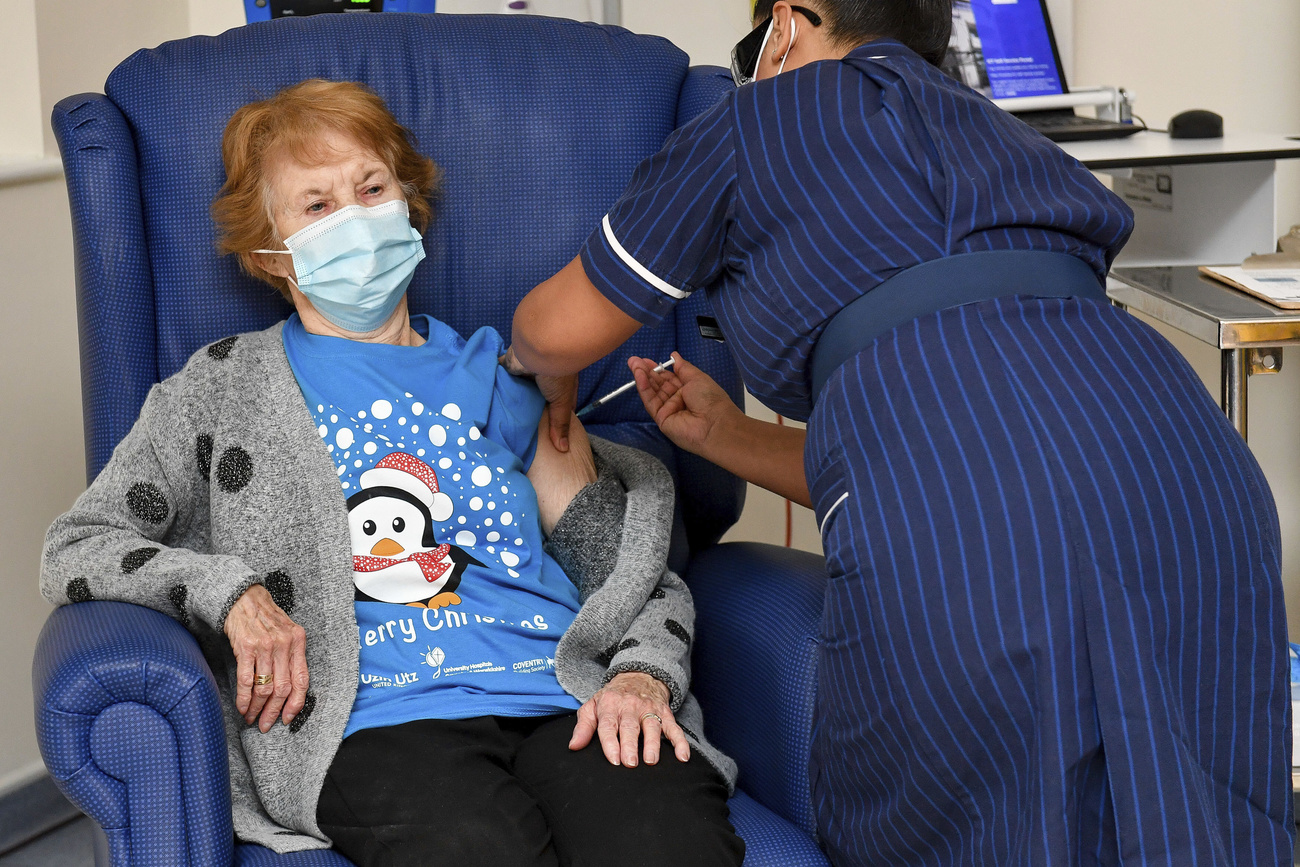
Swiss authorities accused of dragging feet over Covid vaccinations

Switzerland has been criticised for its “hesitant” vaccine purchase strategy and slow vaccine rollout.
“Switzerland has been playing too tactically and has only ordered from potential manufacturers a fraction of the vaccine it really needs,” declared former vice-director of the Federal Office of Public Health (FOPH) Andreas Faller in the SonntagsZeitung newspaper on January 3.
“Switzerland should have taken a certain risk by ordering a sufficient quantity from each manufacturer for the entire population. People are dying, the economy is damaged, every minute is precious. It is incomprehensible that the FOPH was so hesitant in purchasing the vaccine.”
The Swiss government’s goal is to inoculate six million people by summer, which means up to 70,000 vaccine shots per day. Eleven of the country’s 26 cantons had already begun administering jabs by the end of 2020. A further crop, including Zurich – the biggest region in Switzerland – are beginning their campaigns on Monday January 4.
Switzerland has reserved 15.8 million doses of vaccines from three different manufacturers. So far it has received an initial batch of 107,000 Covid-19 vaccines; 250,000 more will follow in January. The first vaccinations started on December 23 with cantons bringing forward their vaccination campaigns.

More
Covid-19 vaccine: Why we still have a long wait ahead
Rudolf Minsch, chief economist at the influential business lobby group ÉconomieSuisse, also bemoaned the slow vaccine rollout and its potential impact on the economy.
“Switzerland has the second most expensive healthcare system in the world. If we do not manage to vaccinate the population by the summer, I do not understand it at all,” he told the NZZ am Sonntag newspaper.
“Unforgivable” delays
An editorial in the Sunday paper was scathing about the national vaccination campaign.
“Various cantons are still in the preparatory stages of a vaccination campaign that was foreseeable a long time ago. In particular, the necessary registration system – we are talking about standard software – is not available everywhere. This is unforgivable,” it wrote.
In a separate interview in the SonntagsBlick Sunday newspaper, Swiss President Guy Parmelin admitted errors in the management of the pandemic.
“Between July and September, we underestimated the situation,” he told the Sunday paper.
He said coordination and understanding between the federal authorities and the cantons were not always optimal. “It was and is not always easy,” he said.
“The [Covid] measures taken have always been a weighing of interests between health, the economy and the population’s attitude. It is not all black or all white,” he added.
SonntagsBlick meanwhile reported that the percentage of people willing to be vaccinated in Switzerland had risen from 41% to 50%, according to a University of Zurich survey. But almost one in three of those surveyed said they did not want to be vaccinated at present and around 20% were still undecided.
Among those over 50, almost 60% say they want to be immunised. Among 15- to 49-year-olds, only 40% are willing to be vaccinated. While around 56% of men are open to a Covid vaccination, only 43% of women are prepared, the report found.

More
Coronavirus: the situation in Switzerland

In compliance with the JTI standards
More: SWI swissinfo.ch certified by the Journalism Trust Initiative





























Join the conversation!